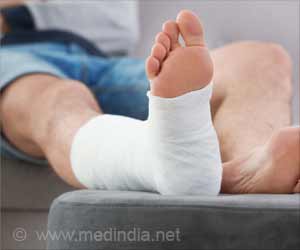Health authorities have raised serious concerns over the way mixed wards are run in Wales.
Welsh health authorities have raised serious concerns over the way mixed wards are run in the province.
Care and Social Services Inspectorate Wales (CSSIW) and Healthcare Inspectorate Wales (HIW) have published reports in which they outline measures to protect the vulnerable adults in hospitals.The HIW report said mixed sex wards, bathrooms and showers “seriously compromise the safety, privacy and dignity of patients”.
The key findings by both CSSIW and HIW were:
In practice, definitions and thresholds for action are not commonly understood or consistently implemented.
Specialist adult protection advice and expertise is important. Area Adult Protection co-ordinators are very important in promoting a positive response. All local authorities have set up a co-ordinator's post now. Both reports suggest that engaging with the beliefs, attitudes and values of staff is as important in bringing about improvement as any necessary work on process and systems.
Assessment, risk assessment, decision making, care planning and recording are not delivered to a consistently good standard.
Leadership and partnership working are central to effective adult protection and safeguarding, but both reports agree that more needs to be done.
Establishing a comprehensive adult protection and safeguarding service requires good leadership and performance management. Currently, such arrangements are not consistently found across heath and social services.
Progress on the delivery of services for vulnerable adults in Wales has been encouraging since the launch of In Safe Hands in 2000, it has been found.
Both reports identify examples of notable or positive practice, as well as highlighting areas for improvement.
CSSIW confirmed via its national inspection, the increasing importance and profile of adult protection in Wales, with a growing commitment to it given and required by local authorities. Examples of good practice were found across Wales, but more needs to be done by all to share the learning from these.
Imelda Richardson, Chief Inspector of CSSIW, said,“These reports confirm that practitioners, managers and leaders are working harder than ever across Wales to protect vulnerable adults from abuse. The challenge for all concerned is to deliver the recommended improvements promptly, safely and to a high standard, with the common goal of ensuring dignity and respect for those people who use the services.”
HIW’s report identifies the appointment of a designated Protection of Vulnerable Adults (POVA) lead in all NHS organisations. This is as a significant step towards improving understanding of the adult safeguarding agenda across the NHS in Wales and ensuring that vulnerable adults are properly protected while accessing NHS services.
The report also states that awareness of what constitutes ‘abuse’ continues to be the biggest issue facing NHS Wales. It explains that there isn’t yet a shared understanding across the NHS and its partner agencies as to what ‘safeguarding’ means in respect of adults and who may be vulnerable.
Peter Higson, Chief Executive of HIW, said, "The NHS has an important role to play both in identifying and reporting abuse and in ensuring that vulnerable adults are safeguarded when accessing healthcare. It is imperative that the NHS builds on the present arrangements so that staffs generally are trained and confident in protecting adults who may be vulnerable.”
Source-Medindia
GPL










